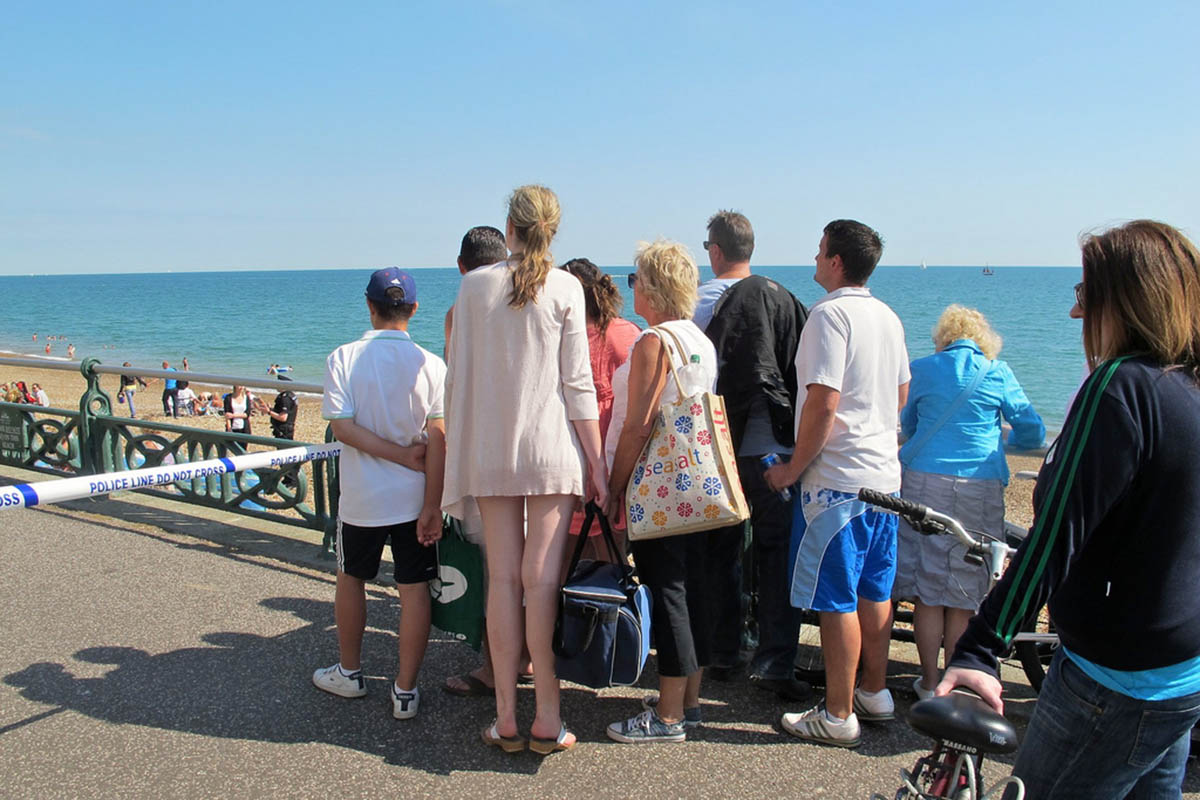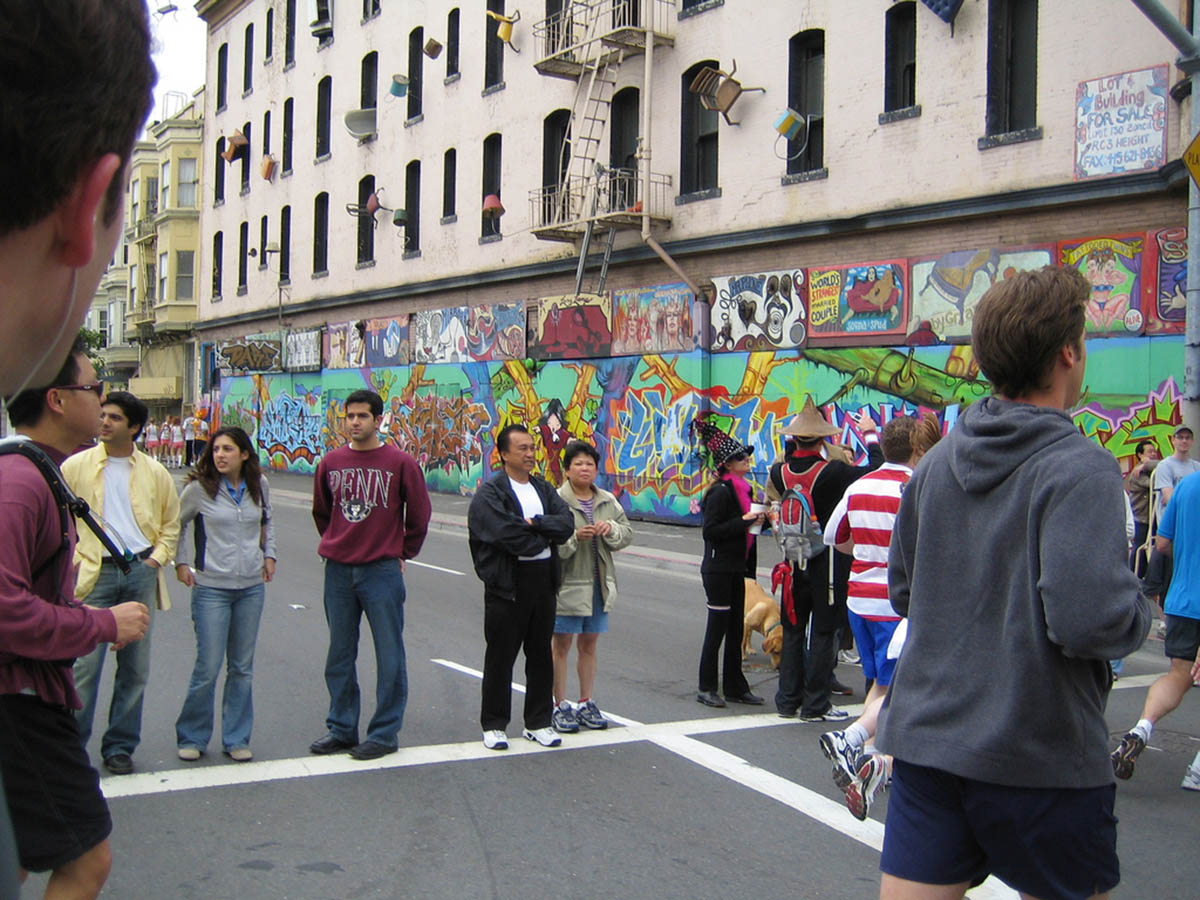Just how much harm will people cause to others under the pretext of "merely following orders"? In the famous 1963 Milgram experiment, paid study participants were under the impression that they were delivering electric shocks ranging from 15 volts to a potentially fatal 450 volts to "learners", each time they gave a wrong answer to a question. "Learner" cries of pain increased with the voltage. When a study participant gave the impression they were uncomfortable with the experiment, they were prompted with "please continue", "the experiment requires you to continue", "it is absolutely essential that you continue", and finally "you have no other choice but to continue".

The Milgram experiment shows just how easy it is to get people — normal, everyday people, not psychopaths, not evil, crazy people, but people just like you and me — to go as far as killing people simply because an authority figure tells them to do so. It answered the question Stanley Milgram, the designer of the experiment, had in response to the fact that countless German citizens participated in the killing of others during the Holocaust: No, committing atrocities in the name of authority wasn't a uniquely German "quality". Rather, it is something we're all prone to.
The Stanford prison experiment, conducted in 1971, did not involve the impression that those participants who were assigned a "guard" role had the power to kill prisoners. In a way, however, this experiment went even further than the Milgram experiment. The guards didn't just live up to their given role, they took it above and beyond, inflicting permanent psychological damage to those participants who were assigned the role of prisoners by behaving in an extremely sadistic manner. Lead researcher Philip Zimbardo himself witnessed the abuse the guards perpetrated and allowed it to continue — until yet another authority figure stepped in to make it stop.
These scientific experiments, as well as the whole of human history, do a perfectly good job at demonstrating that it doesn't take someone especially violent-minded to turn into a beast. All that it takes is, indeed, the right environment. During such scientific experiments, every person either has the role of victim or perpetrator, and there are no bystanders. Real-life atrocities are different. Most people, though they may commit crimes against their fellow humans if given the opportunity, will be mere "bystanders".
This held true for Germans and others during the Holocaust. It holds true for people currently living in ISIS-occupied territories. It even holds true in the case of events that will never make it into history books — in the case of bullied schoolchildren, or abused spouses. The majority of us are bystanders, not committing atrocities but not doing anything to help victims, either.
READ Northern Irish Abortion Laws Are 'Incompatible With Human Rights', But Law Makers Don't Care
Most of us, I believe, would like to be rather certain that they would have been among those who stood up to the Nazis during the Holocaust, rather than belonging to the faceless army of people who simply watched while others suffered, while others died. Most of us, history shows, would be wrong about that.
What Does It Take To Be An Upstander, Rather Than A Bystander?
Professor Ervin Staub, who survived the Holocaust himself, pointed out that it isn't only active participants in atrocities who have an impact — bystanders, he said, play a crucial role. He pointed out: "Bystanders, people who witness but are not directly affected by the actions of perpetrators, help shape society by their reactions. Bystanders can exert powerful influences. They can define the meaning of events and move others toward empathy or indifference. They can promote values and norms of caring, or by their passivity of participation in the system, they can affirm the perpetrators."
This article was triggered by a BBC report titled "Inside Islamic State: A Raqqa Diary". A man risked his life to get the story of his experience in Raqqa out to the world. He too reports how he witnessed executions, stonings, and even the death of a friend. In this dire kind of situation, what can you really do but be a bystander? By actively standing up, he would have secured a place for his head next to other severed heads, without changing anything.

October 24, 2009, however, was different. A girl was raped in Richmond, CA as at least 20 witnesses watched, some even taking photos with their phones. "People came by, saw what was happening and failed to report it," a police officer involved in the case noted.
The Bystander Effect
Think back to a situation in which an emergency — a car crash, perhaps, an epileptic fit, or a street fight — was happening. Most of us can readily pull such an event out of the depths of our memories. What did you do, and why? Chances are that you intervened if you were the only or first person on the scene, but not if numerous others were already there. This, a phenomenon called the bystander effect, happens because people tend to assume that someone else is taking care of the situation, that someone else has already alerted the authorities. Furthermore, a person's sense of individual responsibility is immediately reduced if any one person of many could intervene. As such, we feel less guilt when we choose to walk by and do nothing.
Apathy Or Fear?
What does it take for people to intervene in situations where others are being harmed? First of all, in order to act, we need to recognize that something bad is going on. Then, we need to cognitively recognize the situation as an emergency. To a great extent, this depends on how others around us are acting. Of course, in situations where violence and brutality have become everyday realities. rather than emergencies — such as in war zones — we become so desensitized that we slowly start perceiving such events as normal.
Fear, however, is an even stronger emotion than apathy. Standing up, rather than standing by, carries risks. Sometimes, it carries the risk of losing your life. In brutal dictatorships, being caught resisting the regime has predictable consequences that most of us would rather avoid. Something similar is at play when we witness an ongoing crime: what if the attacker has a gun, and what if they turn on us if we try to do something? Even in the absence of potential threats to life, standing up can have social consequences. Have you ever, as a child, witnessed the systematic bullying of another without doing something? The answer is probably yes, and probably because you didn't want to be the next target.
READ Humanization Of Animals In The Name Of Medical Research Needs New Rules To Support Ethics
There are situations in which we honestly can't do anything. The anonymous Raqqa man who got his stories out to the rest of the world may not have been able to stop the woman he saw crouched inside a hole from being stoned for adultery, but he did become an "active bystander" rather than a passive one by risking his life to share his experiences. That, too, is a choice we have. Perhaps his stories will contribute to a worldwide awareness that something needs to be done?
- Photo courtesy of neate_photos: www.flickr.com/photos/neate_photos/5901170207/
- Photo courtesy of maveric2003: www.flickr.com/photos/maveric2003/148849179/
- Photo courtesy of neate_photos: www.flickr.com/photos/neate_photos/5901170207/


Your thoughts on this